Conseil consultatif
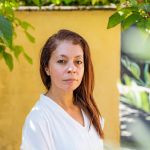
Hind Fraihi
Journaliste d’investigation, Apache
Hind Fraihi est journaliste d’investigation et autrice de l’ouvrage En immersion à Molenbeek, l’enquête qui aurait dû nous alerter. Elle effectue des recherches et travaille sur des sujets comme l’extrémisme islamique et l’extrémisme de droite.
Expertise: Extrémisme Islamique, Extrême Droite, Polarisation, Radicalisation

Jan Jagers
Responsable (fact-checking Knack) et directeur général (deCheckers), Knack Magazine et deCheckers vzw
Jan Jagers est un journaliste indépendant belge. Il travaille pour le magazine Knack depuis 2007, a fait évoluer la rubrique Factcheck du magazine depuis 2012 et est responsable de l’équipe éditoriale Factcheck depuis 2020. Il est également le directeur général de deCheckers, une collaboration transfrontalière et sans but lucratif regroupant plusieurs médias pour lutter contre la désinformation. Il possède un doctorat en sciences politiques et est affilié à la Vrije Universiteit Brussel (VUB).
Expertise: Fact-Checking, Journalisme, Collaboration Transfrontalière

Raphaël Kies
Chercheur senior, Université du Luxembourg
Raphaël Kies est chercheur senior à l’Université du Luxembourg. Il est titulaire d’un doctorat de l’Institut universitaire européen. Il s’intéresse à la démocratie délibérative, aux études électorales, aux innovations démocratiques, au système politique du Luxembourg et aux études sur les médias. Il est le fondateur de la Plateforme luxembourgeoise de la démocratie participative (PLDP.lu). Il a contribué à étudier et à mettre en œuvre plusieurs innovations démocratiques au Luxembourg et à l’étranger. Parmi celles-ci, citons les Consultations citoyennes européennes (en 2007 et en 2009), le système d’aide au vote Smartwielen.lu (depuis 2009) et le Conseil des citoyens sur le climat (2022). Dans le domaine des médias, Raphaël Kies s’occupe du projet national Media Pluralism Monitor (MPM) et du projet MEDIALUX, et est membre du conseil d’administration de la radio de service public luxembourgeoise (radio 100.7).
Expertise: Démocratie Délibérative, Etudes Electorales, Innovations Démocratiques, Système Politique Du Luxembourg, Etudes Sur Les Médias
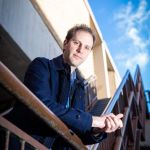
Grégoire Lits
Codirecteur de l’Observatoire de Recherche sur les Médias et le journalisme (ORM) de l’UCLouvain, UCLouvain (ORM)
Grégoire Lits est chargé de cours en sociologie à l’Institut Langage et Communication et codirecteur de l’Observatoire de Recherche sur les Médias et le journalisme de l’UCLouvain. Ses recherches se penchent sur la circulation des informations dans la société et dans les espaces publics. Ses dernières publications concernent les impacts psychologiques de la pandémie de COVID-19 et l’« infodémie » qui y est associée. Il coordonne le projet PANDORIX, financé par Innoviris, qui analyse comment les informations sur la santé ont circulé à Bruxelles pendant la crise du coronavirus (https://www.pandorix.be/).
Expertise: Sociologie, Désinformation, Interface Science/Société, Sphère Publique, Problèmes Sociaux
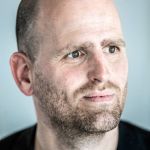
Michaël Opgenhaffen
Professeur associé de journalisme et contenu numérique, KU Leuven et Factcheck.Vlaanderen
Michaël Opgenhaffen est professeur de journalisme et contenu numérique à l’Institute for Media Studies de la faculté des Sciences sociales de la KU Leuven. Il étudie l’influence des réseaux sociaux sur la production et sur la consommation d’informations en ligne, en ciblant particulièrement la désinformation en ligne et le fact-checking. Dans ce contexte, il est affilié à factcheck.vlaanderen, une plateforme de fact-checking indépendante qui utilise l’intelligence artificielle pour identifier la désinformation, et à BENEDMO, le partenariat flamand-néerlandais entre universités, médias, fact-checkers et sociétés destiné à comprendre et lutter contre la désinformation.
Expertise: Etude De Contenus Numériques, Journalisme Sur Les Réseaux Sociaux, Fact-Checking, OSINT, Politique Mise En Place Par Les Plateformes

Juliane von Reppert-Bismarck
Fondatrice et directrice exécutive de Lie Detectors, Lie Detectors
Juliane von Reppert-Bismarck est la fondatrice et la directrice exécutive de Lie Detectors, une organisation primée qui travaille avec plus de 250 journalistes professionnels pour promouvoir l’éducation critique aux médias auprès des élèves et des enseignants. Elle gère le développement et la stratégie de Lie Detectors, et c’est à elle que l’on doit le concept et l’approche de formation. Juliane conseille des institutions nationales et internationales en matière de lutte contre la radicalisation et d’éducation aux médias en ces temps de pluralisme, notamment au sein du High Level Expert Group on Digital Disinformation and Fake News et de l’Expert Group on Tackling Disinformation and Promoting Digital Literacy through Education and Training de la Commission européenne, pour le compte de Lie Detectors. Pour créer Lie Detectors, Juliane a mis entre parenthèses sa carrière de journaliste primée, au cours de laquelle elle a écrit pour le Wall Street Journal, Newsweek, Reuters, MLex et Spiegel Online, entre autres, et effectué des reportages en Europe, aux États-Unis, en Afrique subsaharienne, au Moyen-Orient et dans l’Arctique. Elle est diplômée de la Columbia University Graduate School of Journalism à New York et de l’Université d’Édimbourg, et parle allemand, anglais, espagnol et français.
Lie Detectors est une campagne d’éducation aux médias primée, menée par des journalistes en Europe. L’organisation à but non lucratif collabore avec plus de 250 journalistes professionnels dans le but de renforcer la démocratie en apprenant à des dizaines de milliers d’adolescents et à leurs enseignants à lutter contre la désinformation en ligne et en encourageant la compréhension d’un journalisme de qualité. Lie Detectors s’emploie à améliorer l’éducation aux médias, à sensibiliser à la mésinformation et à faire mieux comprendre l’industrie des médias traditionnels au grand public. Elle favorise les contacts positifs et apolitiques entre jeunes et journalistes. Elle estime qu’à long terme, l’éducation aux médias d’information doit faire partie intégrante de la formation des enseignants en Europe, pour devenir l’un des éléments de base maîtrisés par les enfants européens.
Expertise: Education Aux Médias, Culture Numérique, Journalisme, Pensée Critique, Formation Des Enseignants

Maarten Schenk
Chief Operating Officer / Chief Technical Officer, Lead Stories LLC
Maarten est le cofondateur du site Web de fact-checking leadstories.com et l’inventeur de Trendolizer, un outil utilisé par plusieurs organisations de fact-checking pour rechercher du contenu viral en ligne.
Expertise: Fact-Checking, Médias Viraux, Détection De Tendances, Démystification
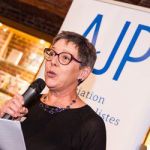
Martine Simonis
Secrétaire générale, AGJPB
Martine Simonis est secrétaire nationale de l’Association générale des journalistes professionnels de Belgique (AGJPB) depuis 1992 et secrétaire générale de l’Association des journalistes professionnels (AJP, Belgique francophone et germanophone) depuis sa création en 1998. Avocate spécialisée dans le droit du travail, elle pratique actuellement le droit relatif aux médias et aux droits d’auteur.
Expertise: Journalisme, Ethique, Liberté De La Presse, Genre

Laurens Van de Voorde
Coordinateur pédagogique, StampMedia
Laurens Van de Voorde est coordinateur pédagogique chez StampMedia, une agence de presse qui s’adresse aux jeunes. StampMedia s’est donné pour mission d’améliorer l’éducation aux médias chez les jeunes. À cette fin, elle organise des cours dans les écoles pour sensibiliser les jeunes à la désinformation et aux moyens de lutter contre ce fléau. Les enseignants, les éducateurs, les médias et d’autres organisations s’appuient souvent sur l’expertise de StampMedia en matière d’éducation aux médias d’information auprès des jeunes. En 2022, StampMedia a entamé une collaboration avec Mediawijs pour mettre au point un nouveau dossier pédagogique sur le fact-checking à destination des adolescents de troisième et quatrième années (14-16 ans).
Expertise: Education Aux Médias D’information, Enseignement, Travail Auprès De La Jeunesse, Désinformation, Récits Complotistes
Membres du consortium
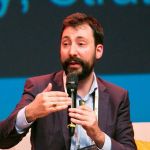
Alexandre Alaphilippe
Directeur exécutif, EU DisinfoLab
Alexandre Alaphilippe est directeur exécutif et cofondateur de l’EU DisinfoLab. Depuis 2017, il a coordonné plusieurs des principales enquêtes de l’organisation sur les opérations liées à l’information en lien avec la Russie, l’Inde et la Chine. Il est également membre de plusieurs groupes de travail à Bruxelles et à Washington DC, qui se penchent sur la réglementation des plateformes, les relations transatlantiques et les menaces hybrides, et où il met l’accent sur le rôle de la société civile dans le maintien des valeurs démocratiques. Il a publié des articles pour la Brookings Institution et ses travaux ont été présentés sur CNN, sur la BBC, dans Le Monde et dans Politico.

Martin Culot
Coordinateur Des Formations, Média Animation
Diplômé en information et communication de l’Université de Louvain-la-Neuve (2012), les activités de Martin Culot concernent principalement la formation continuée des adultes (enseignants, animateurs, intervenants éducatifs) dont il coordonne le pôle au sein de l’asbl Média Animation. Aussi Martin intervient sur des projets européens et collabore à l’écriture d’outils et ressources pédagogiques (recherche-action, analyse, fiches) en éducation aux médias. Il collabore également aux travaux du conseil supérieur de l’éducation aux médias (CSEM) dont il est membre.
Expertise: Critique De L’information (Médias Traditionnels, Fake News, Théories Du Complot), Place Du Jeu Vidéo Dans La Culture
Heini Järvinen
Responsable des projets et des communications, EU DisinfoLab
Heini Järvinen est responsable de projet et de communication à EU DisinfoLab. Elle a plus de dix ans d’expérience dans les domaines de la communication stratégique, de la conception graphique et de la mise en page, des médias sociaux, et de la rédaction et de l’édition de contenu. Elle est chargée de promouvoir les événements et les activités de communication d’EDMO BELUX.
Expertise : Communications, conception graphique, médias sociaux, rédaction, édition, communications numériques sécurisées et respectueuses de la vie privée.
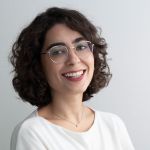
Maria Giovanna Sessa
Chercheuse senior , EU DisinfoLab
Maria Giovanna Sessa est chercheuse senior à l’EU DisinfoLab. Elle est titulaire d’un doctorat en sciences politiques et est une chercheuse, consultante et chargée de cours expérimentée. Elle s’intéresse à la désinformation dans la communication politique, dans les attaques fondées sur le genre et dans les crises internationales.
Expertise: Communication Politique, Désinformation Fondée Sur Le Genre, Infodémie, Guerre De L’information, Analyse Du Discours
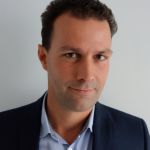
Jonas Lefevere
Professeur de communication politique , Vrije Universiteit Brussel, Centre on Digitalisation, Democracy and Innovation
Jonas Lefevere est chargé de cours en communication politique au Research Centre on Digitalisation, Democracy and Innovation à la Brussels School of Governance de la Vrije Universiteit Brussel. Il cible ses recherches sur la communication politique, et en particulier sur le rôle des médias et la communication des partis en période d’élections, sur le rôle des médias dans les résultats électoraux et sur la communication stratégique des élites politiques. Il est également cofondateur du groupe permanent de l’ECPR sur la communication politique, où il siège actuellement au comité directeur.
Au sein d’EDMO BELUX, Jonas étudie l’impact de la désinformation et coordonne les enquêtes quantitatives qui visent à comprendre dans quelle mesure la population est exposée à la désinformation et y accorde du crédit.
Expertise: Communication Politique, Concurrence Des Résultats, Désinformation

Trisha Meyer
Chargée de cours en gouvernance numérique et participation, Vrije Universiteit Brussel, Centre on Digitalisation, Democracy and Innovation
Trisha Meyer est chargée de cours en gouvernance numérique et participation à la Vrije Universiteit Brussel et professeure honoraire à l’Institut d’études comparatives sur l’intégration régionale de l’Université des Nations Unies (UNU-CRIS) à Bruges. Trisha dirige le Research Centre on Digitalisation, Democracy and Innovation à la Brussels School of Governance de la VUB. Elle étudie les efforts réglementaires visant à ce que les plateformes technologiques prennent des mesures proactives (et automatisées) pour modérer les contenus, et les conséquences sociétales qui en découlent. Elle se penche également sur l’engagement des parties prenantes et sur la gouvernance participative dans la politique numérique, un autre domaine de recherche étroitement lié au premier. Elle est coautrice d’une étude sur l’utilisation de l’IA pour lutter contre la désinformation, réalisée pour le Parlement européen (2019), ainsi que d’une étude cartographiant les réponses mondiales à la désinformation, menée pour l’UNESCO/ITU (2020). Trisha est l’enquêtrice principale du projet EDMO BELUX.
Expertise: Politique Numérique, Responsabilité Des Plateformes, Liberté D’expression, Intelligence Artificielle

Zara Mommerency
Membre du personnel Informations et désinformation, Informations, Désinformation, Propagande, Polarisation
Zara Mommerency works for Mediawijs, the Flemish knowledge centre for digital and media literacy. With a background in History and in Journalism, her main interest and expertise lay in news- and information literacy. The last 2 years, she has been working on online training courses for teachers and for adolescents on polarization, (online) manipulation, (online) identity and factchecking. She’s also in charge of the content for the website of Mediawijs.be. Within EDMO BELUX, she contributes to the collection of the best media literacy materials on disinformation, she will organize media literacy training events and implement a campaign on how to tackle disinformation.
Expertise: News, Disinformation, Propaganda, Polarization
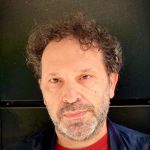
Nick Papapolizos
Gestionnaire de projets, Athens Technology Center
Nikos Papapolizos est gestionnaire de projets à l’ATC Innovation Lab. Il possède un baccalauréat en gouvernement et politique et un master en relations internationales de l’Université d’Essex, au Royaume-Uni. Il travaille depuis plus de 15 ans dans la gestion de projets et de contenu de portails web, et a collaboré avec de nombreuses sociétés en tant que consultant en réseaux sociaux et gestionnaire de communauté. Au sein de l’ATC, il participe à des projets de recherche en ligne et à des activités dans le domaine de la gestion de contenu et de sites Web.
Expertise: Gestion De Contenus En Ligne, Gestion De Projets, Réseaux Sociaux
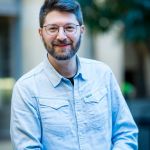
Ike Picone
Professeur d’étude des médias et du journalisme, Vrije Universiteit Brussel, imec-SMIT (Studies on Media, Innovation and Technology)
Ike Picone est professeur associé dans le département des sciences de la communication de la faculté des Sciences sociales de la Vrije Universiteit Brussel et à la Solvay Business School. Il dirige l’unité de recherche Journalism, Trust and Participation au sein du groupe de recherche imec-SMIT (Studies on Media, Innovation and Technology). Ike étudie les pratiques d’utilisation de l’information dans le large domaine de l’étude du journalisme. Il s’intéresse en particulier aux disruptions à la croisée entre journalisme, innovations technologiques et démocratie. Il est coauteur de deux études réalisées pour l’Institut Hannah Arendt sur la polarisation en ligne et sur la capacité des travailleurs sociaux à y faire face au niveau local. Ike est le copromoteur du projet EDMO BELUX.
Expertise: Utilisation De L’information, Etude Du Public, Etude Du Journalisme, Répertoires D’information, Médias Numériques

Bert Pieters
Membre du personnel Informations et désinformation, Mediawijs
Zara Mommerency travaille pour Mediawijs, le Centre flamand de connaissance pour l’éducation numérique et aux médias. Elle a fait des études d’histoire et de journalisme, et s’intéresse principalement à l’éducation aux informations, domaine dans lequel elle s’est spécialisée. Ces deux dernières années, elle a travaillé sur des formations en ligne pour les enseignants et les adolescents sur la polarisation, la manipulation (en ligne), l’identité (en ligne) et le fact-checking. Elle est également responsable du contenu du site Web mediawijs.be. Au sein d’EDMO BELUX, Zara contribue à collecter des informations pertinentes sur l’éducation aux médias en lien avec la désinformation, elle a l’intention d’organiser des événements de formation sur l’éducation aux médias et de mettre en œuvre une campagne de lutte contre la désinformation.
Expertise: Informations, Désinformation, Propagande, Polarisation

Geoffroy Patriarche
Professeur, Université Saint-Louis – Bruxelles, Engage – Research Center for Publicness in Contemporary Communication
Geoffroy Patriarche est professeur à l’Université Saint-Louis – Bruxelles (USL-B) où il enseigne la théorie des médias et de la communication, l’étude des utilisateurs et des publics, et l’histoire sociale des médias. Il est l’un des deux coordinateurs du programme du master en stratégie de la communication et culture numérique (coorganisé par l’ISFSC et l’USL-B). Geoffroy est également codirecteur d’Engage – Research Centre for Publicness in Contemporary Communication, le centre de recherche en sciences de l’information et de la communication de l’USL-B. Ses principaux intérêts de recherche concernent les pratiques de communication numérique envisagées sous leurs aspects discursifs et sociopolitiques, et les liens entre les pratiques des utilisateurs et des publics et la constitution de la ou des sphère(s) publique(s). Au sein d’EDMO BELUX, Geoffroy travaille au développement du hub et sur un projet de recherche relatif à l’impact des campagnes de désinformation sur les processus sociétaux et démocratiques.
Expertise: Médias Numériques, Sphère Publique, Discours, Etude Des Publics

Oleh Shchuryk
Gestionnaire de projets , EU DisinfoLab
Oleh Shchuryk occupe la fonction de gestionnaire de projets à l’EU DisinfoLab. Il est chargé de plusieurs projets financés par l’UE dans le domaine des enquêtes open source et de la lutte contre la désinformation. Il était auparavant gestionnaire de projets senior pour la mobilité et l’innovation chez FACTUAL Consulting Barcelona, où il était responsable de plusieurs projets financés par l’UE dans le domaine de la logistique et de la (micro)mobilité urbaine, ainsi que de la préparation de programmes de formation sur les véhicules autonomes, les bus électriques et la mobilité et la numérisation. Avant cela, il a travaillé comme responsable du département Recherche et innovation à l’IRU, l’Union internationale des transports routiers, où il a supervisé plusieurs projets internationaux dans le domaine du transport de fret. Avant encore, il était employé à l’ECG, l’Association européenne de la logistique des véhicules, où il a mené à bien plusieurs projets en lien avec le transport routier et ferroviaire. En parallèle, en tant qu’expert indépendant pour la Commission européenne, il a évalué des propositions de projets socioculturels dans le cadre des programmes FP7 et Horizon 2020. Oleh est titulaire d’un doctorat et de plusieurs masters de la KU Leuven, en Belgique.

Georgios Terzis
Professeur de communication mondiale et d’éthique, Vrije Universiteit Brussel, Centre on Digitalisation, Democracy and Innovation
Georgios Terzis est professeur associé de communication à la Brussels School of Governance de la Vrije Universiteit Brussel. Il a fait de la recherche postdoctorale à l’Université de Pennsylvanie et à l’Université d’Oxford sur les médias et la sécurité, il a obtenu un doctorat en sciences de la communication à la Katholieke Universiteit Brussel, et a étudié le journalisme et la communication de masse en Grèce, au Royaume-Uni, aux États-Unis et aux Pays-Bas. Ses recherches s’intéressent aux médias et à la sécurité, à l’éthique dans la recherche et les médias, aux médias et à la gouvernance, au journalisme et à la communication au service du développement, à la communication participative, aux fake news, à l’éducation aux médias, à la communication sur les risques et de crise, à la communication scientifique, à la diplomatie scientifique et à la coopération universitaire internationale, au rôle de l’art et de la culture dans la résolution des conflits, et à la diplomatie culturelle.
Il enseigne et se consacre à la recherche dans les départements de communication de nombreuses universités depuis plus de 25 ans. Il a participé à plus de 20 projets et réseaux de recherche internationaux. Il est également le président fondateur de la section Journalism Studies de la European Communication Research and Education Association, et a travaillé comme relecteur pour la plupart des grands journaux et maisons d’édition dans le domaine des sciences de la communication, ainsi que pour la Commission européenne et le Conseil de l’Europe.
Expertise: Désinformation, Education Aux Médias, Médias Et Conflits, Gouvernance Des Médias, Journalisme

Paul de Theux
Président, CSEM – Conseil supérieur de l’éducation aux médias – Fédération Wallonie-Bruxelles, Belgique
Nommé président du Conseil supérieur de l’éducation aux médias (CSEM) en 2020 pour un mandat de 5 ans, Paul de Theux est directeur de Média Animation, un centre de ressources en éducation aux médias reconnu et subsidié par les ministères de l’Enseignement et de la Culture de la Fédération Wallonie-Bruxelles. Le centre est spécialisé dans les domaines de la recherche appliquée, de la formation et des ressources informatives et éducatives pour les enseignants, les adultes, les travailleurs sociaux et les professionnels de l’éducation.
Fort de son expérience professionnelle, Paul de Theux est conférencier en éducation aux médias à l’Université catholique de Louvain et professeur invité à l’Institut des Hautes Études des Communications Sociales (IHECS) à Bruxelles. Auteur et coauteur de ressources éducatives spécialisées dans l’éducation aux médias, il possède de l’expérience dans la formation des adultes, des enseignants et des éducateurs. Il a également participé à la création de l’International Association for Media Education (IAME), dont il est administrateur.
Expertise: Education Aux Médias, Education Permanente, Enseignement, Communication, Relations Internationales
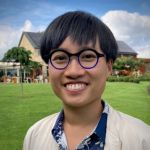
Chloé Tran Phu
Chargée de mission en éducation aux médias, Média Animation
Après un master en langues et littératures romanes et sémiologie (ULiège), Chloé Tran Phu a été professeure de français et référente numérique dans l’enseignement qualifiant et professionnel. Elle a également donné un cours de littérature populaire en formation pour adultes. Depuis 2021, Chloé est chargée de mission au sein de Média Animation. Son travail consiste à former et soutenir les enseignants en éducation aux médias et à intervenir dans l’écriture d’outils pédagogiques et de publications.
Expertise: Approche Critique De La Culture Populaire Médiatique, Représentation De Genre Dans Les Médias, Expressions Des Jeunes

Danae Tsabouraki
Gestionnaire de projets de recherche, Athens Technology Center
Danae Tsabouraki est titulaire d’un baccalauréat en droit et d’un master en sociologie du droit de l’Université nationale et capodistrienne d’Athènes (UoA), ainsi que d’un master en gestion d’entreprise de l’Université d’économie d’Athènes (AUEB). Elle pratique le droit depuis 2012, principalement le droit civil et le droit des sociétés (propriété intellectuelle, protection des données, contrats, droit de la concurrence, etc.). Danae travaille à l’ATC Innovation Lab depuis 2011 en tant que chercheuse junior et depuis 2018 en tant que gestionnaire de projets de R&D financés par l’UE, ciblés sur le secteur des médias et la désinformation. Elle occupe actuellement la fonction de consultante opérationnelle au sein de l’Observatoire européen des médias numériques (EDMO). Elle s’intéresse notamment aux domaines de la recherche sociojuridique en réponse aux innovations technologiques, à la réglementation des contenus en ligne, aux technologies des médias s’appuyant sur l’IA et à la désinformation. Danae est membre de l’association du Barreau d’Athènes.
Expertise: Droit, Réglementation Des Contenus En Ligne, Gestion De Projets

Patrick Verniers
Directeur, CSEM – Conseil supérieur de l’éducation aux médias – Fédération Wallonie-Bruxelles, Belgique
L’expérience professionnelle de Patrick Verniers lui a valu d’enseigner l’éducation aux médias, après avoir créé et coordonné le premier master en éducation aux médias à l’Institut des Hautes Études des Communications Sociales (IHECS) à Bruxelles, en codiplomation avec l’Université catholique de Louvain-la-Neuve (UCLouvain), entre 2013 et 2020. Auteur et coauteur de ressources éducatives spécialisées dans l’éducation aux médias, Patrick possède de l’expérience dans la formation des adultes, des enseignants et des éducateurs. En tant que conférencier à l’École de communication de l’UCLouvain (depuis plus de 15 ans), il a donné plusieurs cours de communication socio-éducative.
Patrick est le coordinateur et l’initiateur de plusieurs projets et réseaux d’éducation aux médias européens et internationaux. À ce titre, il fait partie du groupe d’experts de la Commission européenne sur l’éducation aux médias (MLEG) depuis 2008 et a mené à bien plusieurs missions d’expert pour le Conseil de l’Europe. Il a participé à la création de l’International Association for Media Education, dont il est administrateur.
Expertise: Education Aux Médias, Effets Des Médias, Coopération Internationale, Enseignement Supérieur
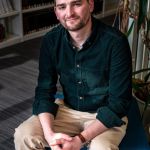
Victor Wiard
Chercheur postdoctorant, Université Saint-Louis – Bruxelles, Engage – Research Center for Publicness in Contemporary Communication
Victor Wiard is Postdoctoral Researcher in media and communication studies. He completed a doctoral thesis (ULB/VUB) on the production and circulation of local news in Brussels. His research interests include news production and reception online and on social media platforms. He has been involved in multiple research projects, including MEDIA CLUSTERS BRUSSELS and ALG-OPINION, which studied the influence of algorithms and interfaces on opinion formation. Within EDMO BELUX, he contributes to the monitoring of the financial viability of the news media sector in Belgium and Luxembourg and analyses the impact of disinformation campaigns on society and democracy. As a Belgian French-speaking partner, he also contributes to the development of the EDMO BELUX hub itself.
Expertise: Social Media; Digital Media; News Reception; Algorithms; Qualitative Research

Tom Willaert
Postdoctorant et coordinateur, Vrije Universiteit Brussel, Centre on Digitalisation, Democracy and Innovation ; imec-SMIT (Studies on Media, Innovation and Technology)
Tom Willaert est le coordinateur d’EDMO BELUX et un chercheur postdoctorant dans le domaine des méthodes numériques au Centre for Digitalisation, Democracy and Innovation (CD2I) de la Brussels School of Governance et à l’imec-SMIT de la Vrije Universiteit Brussel. S’appuyant sur des connaissances en sciences humaines, Tom met au point et utilise des méthodes informatiques d’analyse de textes pour étudier l’information et la désinformation dans les médias en ligne. Voir cette page Web pour obtenir un aperçu des projets et publications de Tom.
Expertise: Sciences De L’information, Méthodes Numériques, Sciences Humaines Numériques, (Dés)Information

Jocelyne Zablit
Chef de projet, AFP
Jocelyne Zablit ass eng AFP Journalistin mat méi wéi dräi Joerzéngte Beruffserfahrung. Si féiert de Moment e puer Projeten an Europa konzentréiert sech op Faktchecken an Desinformatioun. Si huet e puer AFP-Büroen geréiert, de leschte Posten als Bureau Chief fir d’US Westküst zu Los Angeles. Virdru war si Chef vum AFP English Europe/Africa Desk, AFP Bureau Chief in Beirut an European Affairs Correspondent then Lifestyle Editor in Washington. D’Jocelyne Zablit huet verschidde, am-Déift USAID Journalismus Workshops an Afrika an am Mëttleren Osten gefouert.

